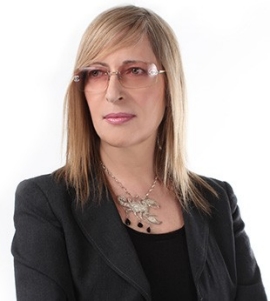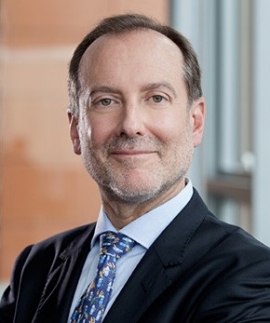RSC Fellow Geneviève Cadieux — Associate Professor, Department of Studio Arts
With a dynamic and distinguished career as an artist, Geneviève Cadieux is no stranger to prestigious awards. Yet, she’s particularly delighted to be selected by the RSC.
“Canada has always been tremendously supportive of my work,” says Cadieux, who received a Governor General Award in Visual and Media Arts in 2011. “In 1990, I was chosen to represent Canada in the Venice Biennale. It was the first year that a pavilion was given exclusively to a female artist. That really pushed the work of women artists forward. So I’m part of the first generation of women who became recognized as real artists. We weren’t the exceptions anymore.”
Cadieux has been an influential figure in Canadian photographic art since the 1980s, when she made a name for herself with large-scale, photo-based art that focuses on the mutual implication of the human body and landscape. Along with countless invitations to exhibit around the world, she was invited to do a project at the Tate Gallery in 1995. Cadieux’s work was included in the landmark photo show Passages de l’image, Musée national d'art moderne, Centre Georges Pompidou, Paris in 1990, and their Elle exhibit in 2010.
“Because my father owned a repertory cinema, my practice is highly influenced by filmmaking,” she says. “Also, I studied painting in Ottawa, where the American collection at The National Gallery is exceptional. The size and scope of Donald Judd’s work, for example, was an enormous influence.”
 Fine Arts professor Geneviève Cadieux: “Canada has always been very supportive of my work.” | Photo by David Romero
Fine Arts professor Geneviève Cadieux: “Canada has always been very supportive of my work.” | Photo by David Romero
 Accounting professor Michel Magnan: “My work reaches audiences beyond academic researchers.” | Photo by Christian Fleury
Accounting professor Michel Magnan: “My work reaches audiences beyond academic researchers.” | Photo by Christian Fleury